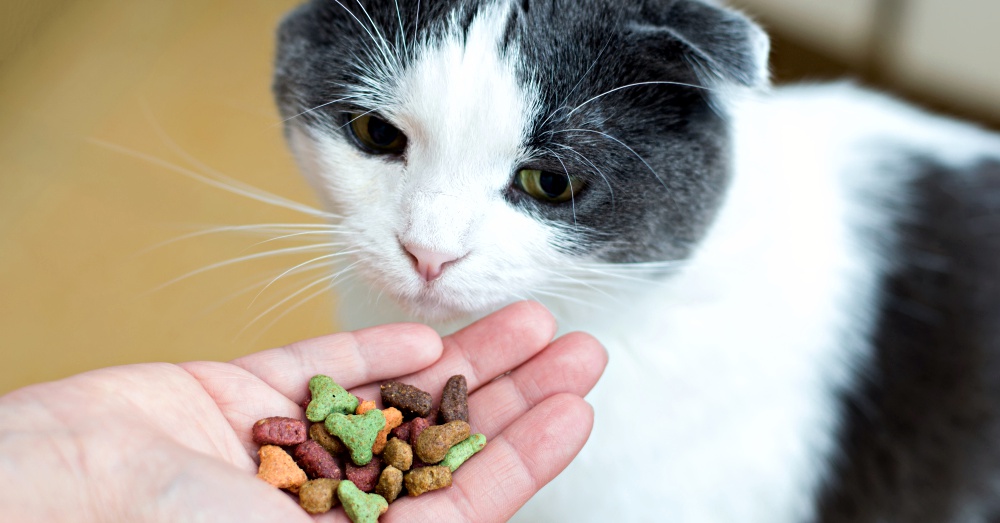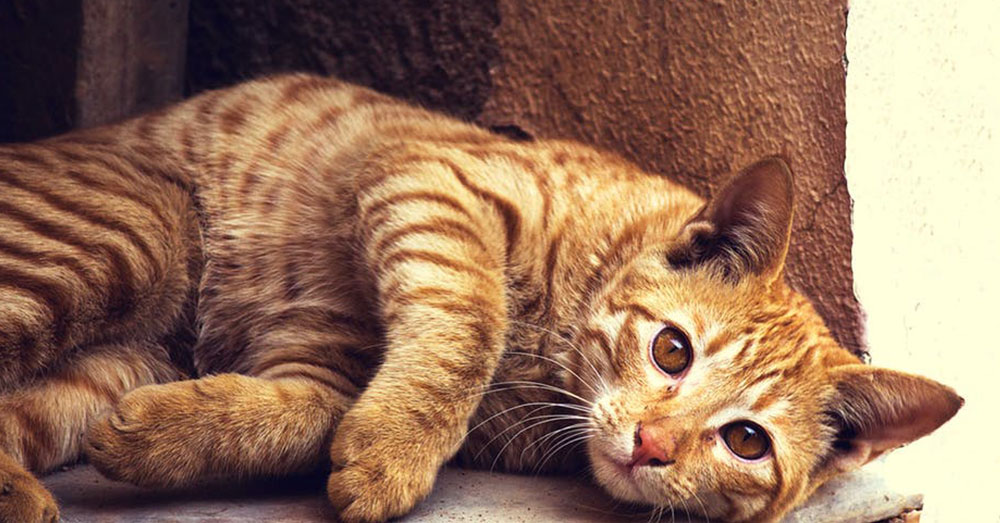Kidney Failure In Senior Cats Is Widespread; Could Cat Food Be The Cause?
Recently, there have been countless recalls on pet food. It causes concern for pet parents and makes one question what is really in the food we are feeding our fur children.
Chronic kidney disease (CKD) may be the most common ailment of senior cats, according to Cornell Feline Health Center. As cats age, their kidneys stop working as well as they did when they were younger. Kidneys play an important role in purifying the blood and urine to keep the body healthy. The cat food you are feeding could be damaging the kidneys because of one excess ingredient.

Photo: Adobe Stock/osobystist
A recent study done by LMU veterinarians found that one ingredient, excess phosphorus, could be the culprit of deteriorating kidney function in cats. The study was performed by Professor Ellen Kienzle and Dr. Britta Dobenecker of the Chair of Animal Nutrition at LMU.
Excess phosphorus in the diet contributes to a higher percentage of chronic kidney disease in senior cats. The study found that phosphorous levels common in most cat foods could be causing long-term damage to kidney function. Some food contained several times the amount of phosphorus recommended for a healthy cat. People think that these levels are okay, but they are not.
“The maximum level detected in these tests (nearly nine times the required amount) might be sufficient to damage the healthy feline kidney within a few weeks. The phosphates in animal foods are in part derived from natural sources, mainly bone and cereals. However, pet-food manufacturers also add inorganic phosphates to achieve the appropriate texture and extend shelf life,” reports Kienzle.

Photo: Adobe Stock/kozorog
Phosphorus is a necessary mineral that is required in the diet, but only in the right amounts. AAFCO recommends a healthy cat diet has 0.5% phosphorus on a dry matter analysis basis. Phosphorus is regulated in the kidneys, but when the amount is over five times the recommended amount, it makes the kidneys work harder.
LMU veterinarians are planning on extending their study to test the source of phosphorus and how that effects the kidneys. They are also going to study the effects phosphorus has on dogs.
If you are concerned that your cat is in the early stages of CKD, take a look at the symptoms below and contact your vet.
Signs of Chronic Kidney Disease
– increased water intake
– dehydration
– diluted and excessive urination
– susceptibility to bladder infection
– feel ill and appear lethargic
– weight loss
– vomiting
– elevated blood pressure
These symptoms have gradual onset and can be managed. However, the earlier CKD is detected and treated, the higher the rate of survival and quality of life.

Photo: Adobe Stock/fantom_rd
Diagnosis
A vet will perform blood work and a urinalysis to detect how well the kidneys are functioning. The results will show how well the kidneys are filtering or regulating waste products. An ultrasound and blood pressure test may be performed as well to make a diagnosis.
If you are told that your cat has CKD, there is hope.

Treatment
Unfortunately, there is not a cure for CKD, but there are things you can do to improve the quality of life and possibly prolong life. A diet change is proven to help. Cornell states, “Studies suggest that therapeutic diets that are restricted in protein, phosphorus, and sodium content and high in water-soluble vitamins, fiber, and antioxidant concentrations may prolong life and improve quality of life in cats with CKD.”
Fresh water needs to be available at all times to encourage your cat to drink. Cats get most of their water from their food and will not drink regularly like a dog. Your cat may become dehydrated because of the increase in urination. Cats are not big drinkers, so you may have to resort to subcutaneous fluid administration. This is becoming a common avenue CKD cat parents are having to take, so vets are teaching them to do it at home.

Source: Pexels
There are some prescription medicine and supplements that have helped rid the body of built up toxins. Together these options have made the quality of life better for cats. But the problem may have started with food, so be sure that you look at the amount of phosphorus in your pet food. If you are concerned, contact your vet.




